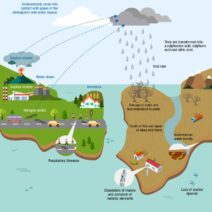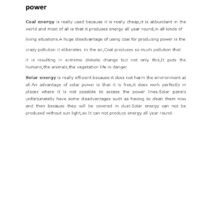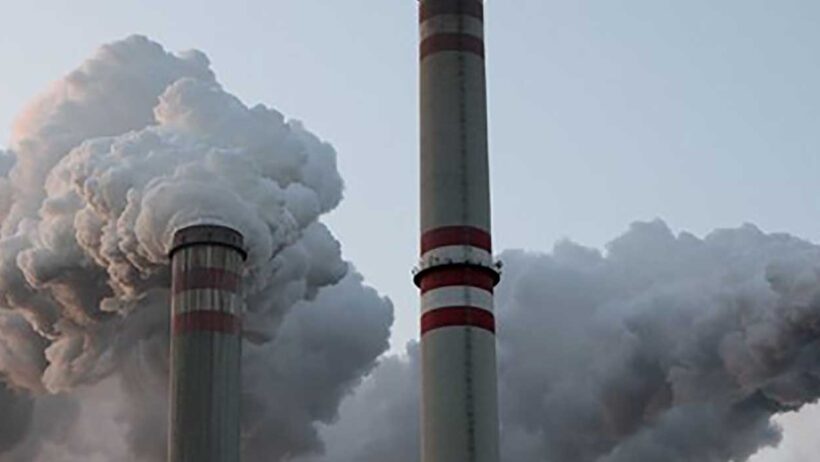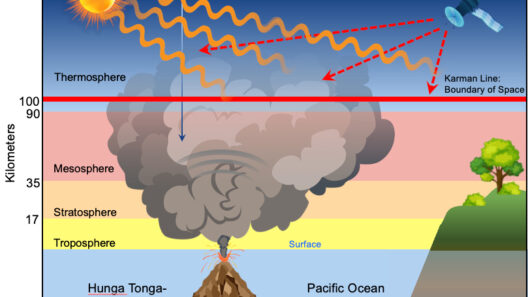The term “fossil fuels” encompasses energy resources derived from ancient, organic material, primarily coal, oil, and natural gas. These substances have been the bedrock of industrial civilization, fueling economic growth, energy production, and lifestyle comforts. However, the usage of fossil fuels has been a double-edged sword, unleashing devastating consequences for our planet, particularly in regard to the climate crisis. Understanding how burning fossil fuels exacerbates this predicament can shift perspectives and encourage a more sustainable approach to energy consumption.
At its core, the combustion of fossil fuels releases an array of greenhouse gases, most notably carbon dioxide (CO2). This contributes to the greenhouse effect, a natural process where certain gases trap heat in the Earth’s atmosphere. While this effect is essential for maintaining temperatures conducive to life, excessive quantities of CO2 result in an enhanced greenhouse effect, leading to global warming and climate instability. According to the Intergovernmental Panel on Climate Change (IPCC), the concentration of CO2 in the atmosphere has surged to levels not seen in millions of years, primarily due to anthropogenic emissions.
Burning fossil fuels is responsible for approximately three-quarters of global greenhouse gas emissions. This astounding statistic necessitates scrutiny, as it underscores a fundamental truth: our addiction to fossil fuels will have sweeping implications not only for our climate but also for ecological and human systems. As temperatures rise, we witness a cascade of climate anomalies, including more frequent and severe weather events, changing precipitation patterns, rising sea levels, and disrupted ecosystems.
Consider the ramifications of extreme weather. Droughts exacerbate water scarcity, leading to agricultural decline and food insecurity. On the other hand, intensified storms contribute to flooding, which devastates infrastructure and displaces communities. The ramifications extend beyond immediate damage; they reverberate through economies, public health systems, and social stability. Populations reliant on stable weather patterns for agriculture and economic activities find themselves in precarious positions, particularly in developing regions.
Furthermore, the burning of fossil fuels has dire implications for air quality. The combustion process releases a cocktail of pollutants, including sulfur dioxide (SO2), nitrogen oxides (NOx), and particulate matter, which contribute to smog formation and various health issues such as respiratory illnesses, cardiovascular problems, and premature death. According to the World Health Organization (WHO), air pollution ranks among the most significant environmental health risks globally. This phenomenon compounds the ongoing climate crisis, as vulnerable populations face a dual burden of environmental and health crises.
Additionally, the link between fossil fuel use and biodiversity loss is critical to recognize. As habitats are altered or destroyed to accommodate fossil fuel extraction or transportation, ecosystems experience fragmentation. This not only threatens countless species with extinction but disrupts the intricate balance of biodiversity necessary for resilient ecosystems. Healthy ecosystems provide essential services, such as pollination, nutrient cycling, and climate regulation. The loss of such services due to fossil fuel dependency poses a threat not just to wildlife but also to humanity’s survival and well-being.
Addressing the climate crisis necessitates introspection concerning socio-economic practices. The fossil fuel industry is deeply entrenched in global economies, with millions of jobs dependent on its continuation. Transitioning toward renewable energy sources, such as solar, wind, and hydroelectric power, poses not only a challenge but an opportunity. The shift is imperative to mitigate the existential threat posed by climate change. Investing in clean energy technologies not only helps reduce greenhouse gas emissions but also fosters innovation, creates employment opportunities, and enhances energy security.
Moreover, the conversation around fossil fuels cannot overlook the ethical dimensions surrounding climate justice. Marginalized communities often face the brunt of climate impacts, as they frequently reside in regions more vulnerable to environmental hazards. These communities must be included in decision-making processes as society transitions to sustainable energy solutions. A just transition should emphasize equitable access to clean energy technologies, ensuring those disproportionately affected by fossil fuel extraction and climate change are prioritized in the shift toward sustainability.
The solution is not simply to vilify fossil fuel use but to rethink energy consumption paradigms and explore more sustainable alternatives. Educating the public about the consequences of burning fossil fuels encourages a collective shift in perspective. Awareness of the individual and societal effects can foster a culture of sustainability, urging communities and governments to pursue innovative policies that favor renewable energy investments.
Moreover, international collaboration is imperative. Climate change knows no borders; therefore, cooperation among nations is crucial in developing comprehensive strategies that hold polluting entities accountable. Global frameworks, such as the Paris Agreement, emphasize the importance of collective efforts to curtail greenhouse gas emissions and limit global warming to well below 2 degrees Celsius compared to pre-industrial levels. This ambition requires accountability, transparency, and unwavering commitment from countries around the globe.
In conclusion, the combustion of fossil fuels is intricately linked to the climate crisis, fostering a multitude of environmental, social, and economic issues. Addressing this crisis requires a multi-faceted approach that incorporates technological, social, and political reforms. Shifting perspectives on energy consumption opens the door to transformative actions that prioritize ecological sustainability and human health. By embracing innovation and collaboration, we can initiate a fundamental shift toward a more sustainable energy future, mitigating the impacts of climate change and ensuring a healthier planet for generations to come.






